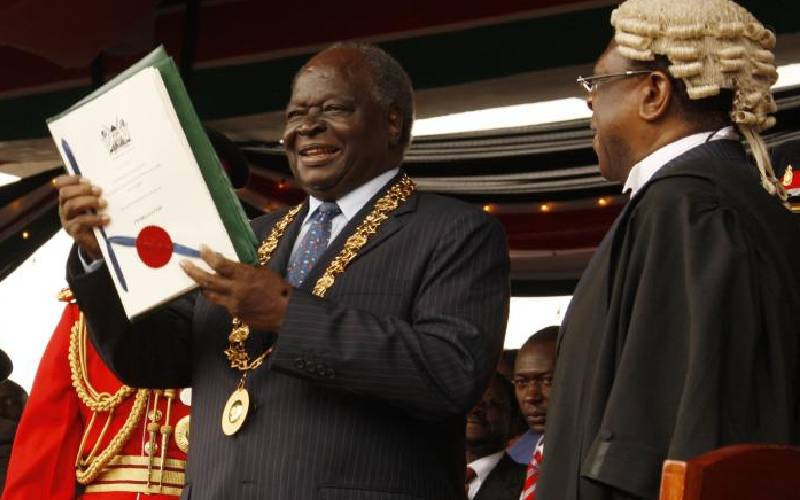×
The Standard e-Paper
Join Thousands Daily

When the late President Mwai Kibaki displayed a copy of the New Constitution after the Promulgation ceremony at Uhuru Park, Nairobi on August 27, 2010. [File, Standard]
The constitutional amendment train seems to be gathering momentum, with the legalisation by Parliament of the Kalonzo-Ichungwa bipartisan talks.